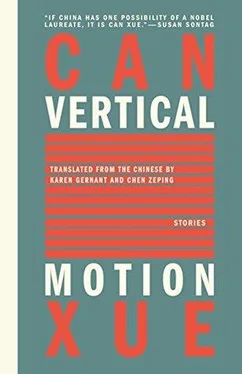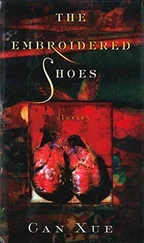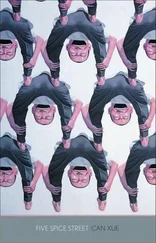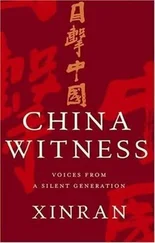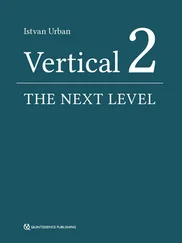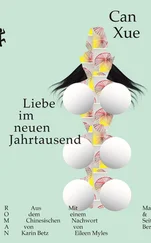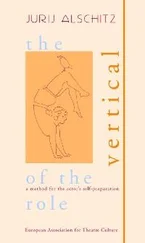“W— u— u— m— ei—,” she shouted.
Something blocked her voice. No matter how hard she tried, her voice wouldn’t carry. Suddenly, she knew: Wumei was separated from her by several mountains. How could she see so well? It certainly was Wumei, because — for many miles all around — she had never seen anyone else with such a distinctive backpack. And there was also the way she walked — a little like a squirrel now. Mrs. Yun felt a twinge in her heart, and she almost lost her breath. She bent her head, and carrying the bucket, she went home.
“I saw Wumei,” she said to Mr. Yun.
“So did I. After this, we’ll see her often,” Mr. Yun said insipidly.
“Is this all we get for bringing up a daughter?”
Mr. Yun laughed. “Isn’t it true that your colored vision has also been restored?” he asked.
“You’ve been there, right?” She blinked her eyes and understood.
In Wumei’s room, her mosquito net swayed in the breeze. Those small green serpents all seemed alive. They were moving around. Mrs. Yun looked at them woodenly, and her legs went weak for a while. Mr. Yun came over and led her out of the room, and then locked the door with a copper lock.
“We can see her whenever we want to,” he said.
Mrs. Yun couldn’t figure out her feelings: she seemed to want to weep and yet she seemed to rejoice.
Translators’ Acknowledgments
We thank Bradford Morrow, editor of Conjunctions , for publishing three of the stories included in this volume: “An Affectionate Companion’s Jottings” (No. 47, fall 2006); “Moonlight Dance” (No. 50, spring 2008); and “Rainscape” (No. 53, fall 2009). We also thank Heide Hatry for including “The Roses at the Hospital” in her book Heads and Tales (New York: Charta Art Books, 2009).
All of the other pieces appear here for the first time in English. We are grateful to Can Xue for graciously making available two stories that have not yet been published in Chinese, “Vertical Motion” and “Papercuts.” We have worked with Can Xue for nearly ten years, and our association with her is one that we treasure.
We also wish to thank Open Letter’s Chad W. Post and E.J. Van Lanen for their enthusiastic response to our submission of this book. We greatly appreciate E.J. Van Lanen’s skill in editing this manuscript. He made light use of the blue pencil, and we’re grateful for his helpful revisions and queries. We thank him, too, for his stunning cover design, and we thank N. J. Furl for the attractive interior book design.
Translating takes time from those who are central to our lives. Chen Zeping thanks his wife Weng Zhongyu and Karen Gernant thanks Louis Roemer for their understanding and patience.
Can Xue, meaning “dirty snow, leftover snow,” is the pseudonym of Deng Xiaohua. Born in 1953, in Changsha City, Hunan province, her parents were sent to the countryside during the Cultural Revolution, and she only graduated from elementary school. Can learned English on her own and has written books on Borges, Shakespeare, and Dante. Her publications in English include Dialogues in Paradise, Old Floating Cloud, The Embroidered Shoes, Blue Light in the Sky and Other Stories , and most recently, Five Spice Street .
Karen Gernant, professor emerita of Chinese history at Southern Oregon University, and Chen Zeping, professor of Chinese linguistics at Fujian Teachers’ University, collaborate on translating, and more than thirty of their translations have appeared in literary magazines. This is their tenth book.
Open Letter — the University of Rochester’s nonprofit, literary translation press — is one of only a handful of publishing houses dedicated to increasing access to world literature for English readers. Publishing ten titles in translation each year, Open Letter searches for works that are extraordinary and influential, works that we hope will become the classics of tomorrow.
Making world literature available in English is crucial to opening our cultural borders, and its availability plays a vital role in maintaining a healthy and vibrant book culture. Open Letter strives to cultivate an audience for these works by helping readers discover imaginative, stunning works of fiction and by creating a constellation of international writing that is engaging, stimulating, and enduring.
Current and forthcoming titles from Open Letter include works from Argentina, Catalonia, Czech Republic, Poland, Russia, and numerous other countries.
www.openletterbooks.org
